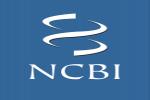2014 Sep 30. [Epub ahead of print]
 The Role of Cytokine Responses During Influenza Virus Pathogenesis and Potential Therapeutic Options.
The Role of Cytokine Responses During Influenza Virus Pathogenesis and Potential Therapeutic Options.
Abstract
Aberrant pulmonary immune responses are linked to the pathogenesis of multiple human respiratory viral infections. Elevated cytokine and chemokine production “cytokine storm” has been continuously associated with poor clinical outcome and pathogenesis during influenza virus infection in humans and animal models. Initial trials using global immune suppression with corticosteroids or targeted neutralization of single inflammatory mediators proved ineffective to ameliorate pathology during pathogenic influenza virus infection. Thus, it was believed that cytokine storm was either chemically intractable or not causal in the pathology observed. During this review, we will discuss the history of research assessing the roles various cytokines, chemokines, and innate immune cells. Innate immune cells play in promoting pathology or protection during influenza virus infection. Several promising new strategies modulating lipid signaling. Lipid signaling have been recently uncovered for global blunting, but not ablation, of innate immune responses following influenza virus infection. Importantly, modulating lipid signaling through various means has proven effective at curbing morbidity and mortality in animal models and may be useful for curbing influenza virus induced pathology in humans. Finally, we highlight future research directions for mechanistically dissecting how modulation of lipid signaling pathways results in favorable outcomes following influenza virus infection.
- PMID:
- 25267464
- [PubMed – as supplied by publisher]

